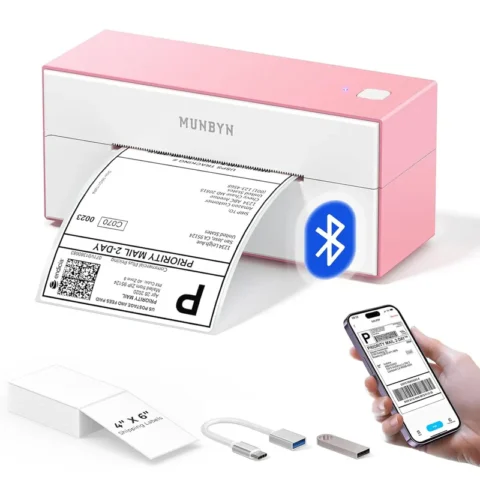As applications grow in size and complexity, traditional testing methods struggle to keep up. Artificial intelligence (AI) revolutionizes test case development, allowing developers to adapt to the changing landscape of application development. This blog explores how AI techniques are revolutionizing test management tools and application testing, allowing teams to create test cases faster, improve test coverage, and deliver higher-quality applications to users.
What Are Test Cases?
Test cases are step-by-step instructions for checking if an application works correctly. They describe what to do and what should happen when you do it. A test case might tell you to open the login page, enter a valid username and password, click the login button, and check that the user’s dashboard appears. Testers use these test cases to make sure all parts of an application work as they should.
Why Test Case Development Is Challenging?
Creating good test cases isn’t easy. It takes time, knowledge, and attention to detail. Testers must understand all the ways users might interact with the application. They need to think of unusual situations that could cause problems.
Keeping test cases up-to-date as the application changes is also tricky. Testers must make sure test cases cover all important features. Writing clear instructions that anyone can follow adds another layer of difficulty. These challenges can slow down the testing process and make it harder to find bugs before users do.
How AI Helps Create Test Cases?
AI brings new test management tools and methods to test case development. It can analyze user behavior, looking at how real users interact with an application. AI notices patterns and common actions, helping create test cases that match how people actually use the app. For example, AI might see that users often search for products right after logging in. It would then suggest a test case for this common behavior.
Some AI tools can generate test cases automatically. They look at the application’s code and design to figure out what needs testing. This saves a lot of time compared to writing test cases by hand. The AI can quickly come up with hundreds of test cases, covering many different scenarios.
AI helps improve test coverage by finding gaps in the existing test cases. It can suggest new test cases to test parts of the app that might have been missed before. AI can also analyze past bugs and issues to predict where new problems might occur. This helps testers focus on areas that are more likely to have defects.
When developers update an application, test cases often need updates too. AI can quickly analyze changes and suggest how to update test cases. This helps keep testing up-to-date without a lot of manual work. AI can also help write test cases in clear, simple language, making it easier for all team members to understand and use them.
Test Case Prioritization Using Machine Learning
Machine learning algorithms can assist in prioritizing test cases by analyzing historical results, code changes, and other relevant elements when test suites become too large to run all tests after code modifications.
AI systems help testing teams identify tests that are more likely to uncover bugs or regressions caused by changes. This helps testers prioritize the most important areas of an application, leading to faster response times and more efficient use of testing resources.
Visual testing Using Deep Learning Techniques
CNNs, a type of deep learning model, can detect visual inconsistencies, layout issues, and rendering problems on different browsers and devices in application.Visual testing tools that utilize AI can automatically identify potential UI bugs by comparing rendered web pages with expected designs or previous versions. This eliminates the need for testers to manually spend numerous hours checking and confirming these issues.
Benefits of AI-Driven Test Case Development
Using AI-driven approaches for mobile application testing offers many advantages.
Improved Testing Coverage
AI systems generate a diverse range of test cases, including unconventional situations and boundary conditions, which ensures the robustness and reliability of application.
Automated test case generation significantly accelerates the creation and management of test suites, enabling testing teams to keep up with fast development cycles and agile methodologies.
Improved Test Accuracy
With the help of artificial intelligence, testing tools can become smarter. They learn from data and previous outcomes to generate test cases that are more precise and applicable. This decreases the occurrence of false positives, allowing testers to concentrate on real problems.
Enhanced Test Maintenance
Along with the advancement of application, AI systems can update and improve test cases by themselves to match alterations in the function or requirement. This active method guarantees that test sets continue to be useful and significant as time goes on.
Challenges and Considerations
Though AI-guided test case development shows great promise, it is important to understand that it cannot solve all testing difficulties. Some points of thought are:
Data Quality and Quantity
Artificial Intelligence systems, like AI algorithms or machine learning models, require a substantial amount of good data. This means organizations need to have enough historical test data and application usage information for training the AI system effectively.
Integration with Existing Processes
When using AI-based testing methods, the existing workflows and processes may need to change. Teams must think about how they will include these fresh tools and techniques into their present development and testing lines.
Skill Set Requirements
Using AI for making test cases could mean that team members need to learn new skills, get support from data scientists and machine learning specialists. This will require organizations to be ready for investing in training or hiring these kinds of professionals.
Ethical and Bias Considerations
Like any AI system, it is important to be cautious of possible biases that might enter into the test case generation process. Regular audits and varied input data can reduce these dangers.
The Future of AI in Application Testing
As AI technology improves, we can expect even more advanced help with test case development. AI might create entire mobile application testing suites automatically, needing only minor human adjustments.
It could predict how changes in one part of an application will affect others, suggesting targeted test cases. AI can learn from real user feedback to create more realistic and useful test scenarios. We may see AI working alongside human testers, offering suggestions and insights in real-time.




